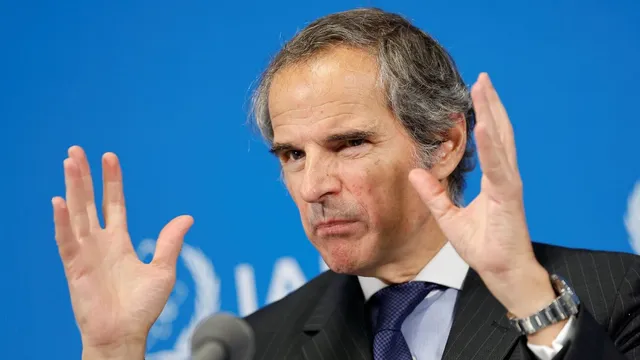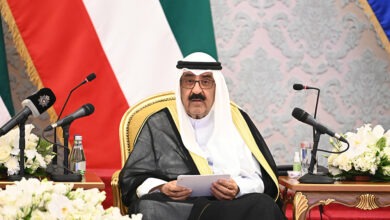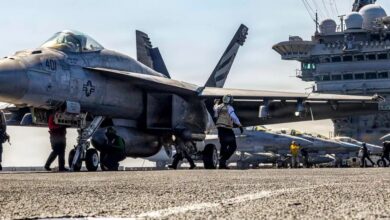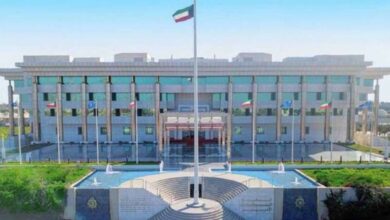Israel’s pre-dawn airstrikes on Natanz have caused ‘radioactive, chemical contamination’: IAEA
. . . as tensions explode between Iran and Israel, India is being seen as a potential stabilizing force in the region — uniquely positioned to calm hostilities through diplomatic backchannels, given its historic and strategic ties with both sides

Following the dramatic escalation of hostilities between Israel and Iran, the International Atomic Energy Agency (IAEA) confirmed on Friday that Israel’s pre-dawn airstrikes on Iran’s Natanz uranium enrichment facility have caused “radioactive and chemical contamination” in the surrounding desert region, according to news agencies.
IAEA Director-General Rafael Grossi, addressing an emergency session of the UN Security Council, revealed that Israel’s strikes destroyed Natanz’s above-ground pilot enrichment plant, including all surface electrical infrastructure and backup generators. While the site’s main centrifuges remain buried 25 meters underground, Grossi warned that the complete loss of power may have compromised the underground cascade system, posing further risks to nuclear safety.
In addition to Natanz, Israeli missiles and drones targeted two other key nuclear sites — the Fordow Fuel Enrichment Plant, which lies deep within a mountain near Qom, and a research facility in Isfahan, according to Iranian Foreign Minister Abbas Araghchi, who also addressed the Security Council.
The IAEA confirmed heightened military activity around both Fordow and Isfahan, raising international concerns over nuclear safety, regional fallout, and the collapse of nuclear non-proliferation norms amid escalating military action.
Meanwhile, as tensions explode between Iran and Israel, India is being seen as a potential stabilizing force in the region — uniquely positioned to calm hostilities through diplomatic backchannels, given its historic and strategic ties with both sides.
Late Friday night, Israeli Prime Minister Benjamin Netanyahu called Indian Prime Minister Narendra Modi to inform him of Israel’s widescale aerial strikes — codenamed Operation Rising Lion — targeting Iranian nuclear and missile infrastructure. Netanyahu framed the assault as a “purely defensive necessity” against an “existential threat” posed by Iran’s alleged accelerated missile development.
Today (Saturday), Israel’s Ambassador to India, Reuven Azar, told PTI Videos that India’s ability to communicate with both Tehran and Jerusalem gives it a rare and vital diplomatic opening.
“India has options for dialogue with each side,” said Azar. “It is certainly able to play a role… We are pleased to have this genuine dialogue with India, which is a very good friend.”
As Iran retaliated with waves of ballistic missiles and drones early Saturday, striking major Israeli cities including Tel Aviv and Jerusalem, the region edged dangerously close to all-out war.
Tehran reported at least 78 dead — including senior military commanders — from Israeli strikes, while Israel claimed Iran’s counterattack involved fewer than 100 projectiles, most of which were intercepted or fell short.
Amid this high-stakes military escalation, New Delhi’s measured response stood out. India’s Ministry of External Affairs issued a statement expressing “deep concern” over the flare-up and urged “maximum restraint and a return to dialogue”, signaling readiness to support de-escalation efforts.
India’s neutral positioning and deep-rooted relations with both nations afford it unique leverage. Home to the world’s third-largest Jewish and Shia Muslim populations outside the Middle East, India possesses both the cultural capital and strategic credibility to act as a mediator.
Analysts note that India’s past diplomatic interventions — such as its behind-the-scenes role in the 2022 Yemeni ceasefire — reinforce its credentials as a trusted interlocutor in regional disputes.
Some diplomatic sources suggest that India could partner with Oman and the UAE — countries with similarly pragmatic ties across regional fault lines — to form a triangular peace initiative aimed at halting the current cycle of escalation.
The stakes are high: an extended aerial conflict between Iran and Israel could not only derail fragile nuclear diplomacy but also disrupt global oil supplies and further destabilize West Asia. Whether India can translate its influence into tangible diplomatic outcomes now hinges on swift backchannel shuttle diplomacy in the days ahead.
India’s next moves — quiet or overt — may prove vital in defusing what could otherwise become the most dangerous regional conflict in years.













